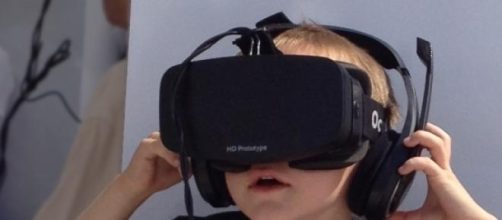It failed twenty years ago, but technology is finally ready to go mass market and revolutionise how people interact with gaming, virtual tourism, education and entertainment. That's the bet on virtual reality that huge companies are making, clearly out of their comfort zone – Facebook bought Oculus and is set to release the Rift early next year, HTC is partnering with Valve, and Crytek, known for its games enabling system CryEngine is investing heavily in this new segment. The German company is now developing a full-fledged VR game, 'Robinson: The Journey', and believes it will open the doors to an ambitious future.
"Billions of people have cellphones. How fast did that happen? A decade. For virtual reality I'm predicting 4 years. I think we're going to see mass acceptance for VR," Crytek's David Bowman told Blasting News after a demo at E3. The company reportedly put 50 people working on VR and has been showing demos of 'Robinson' with one of the latest Oculus Rift prototypes.
David Bowman, who serves as director of production at Crytek, believes virtual reality will hit it big because of the processing power of the machinery that's finally available. "Consumer technology is ready. This is consumer companies going 'yes, we're going to make this happen'," he declares. "The visual display is finally there, the cost of producing that much power and that visual display has come down to the high end of consumer acceptability.
That will drive success stories, which will drive profits, which will drive reinvestment, that means lower costs."
The problem with earlier technology (remember Nintendo's Virtual Boy from 1995?) is that it had latency and precision problems. Crytek is working with 90 frames per eye, per second, which makes it comfortable to the eye and the brain. "You drop below that and you start having problems," Bowman explains.
As for 'Robinson: The Journey', they're taking the time to get it right. "We're spending the energy and resources with the brilliant people that work at Crytek really focussed on making sure this is a smooth experience you can share with your non technical friends," the director says.
"I want my mom to put this on and go: 'oh, I finally understand what my son does'. I've been making games for a long time and she's never experienced it." He also thinks it will be a relatable and shareable experience, unlike Google Glass (which was scrapped and is being redesigned), and will provide mass market experiences as long as there is good content available. It might be watching a concert from the side of the stage, a horror movie from inside the zombie house or a tour of the Great Wall in China.
A handful of high profile virtual reality headsets will debut early next year, from Facebook's Oculus Rift to Sony's Project Morpheus, open-source AntVR and Vive by HTC and Valve. Prices should be below $500 and dozens of games are being developed right now. But the industry is hoping to make an impact in lots of areas, not only gaming: it just happens that it will start from there.

